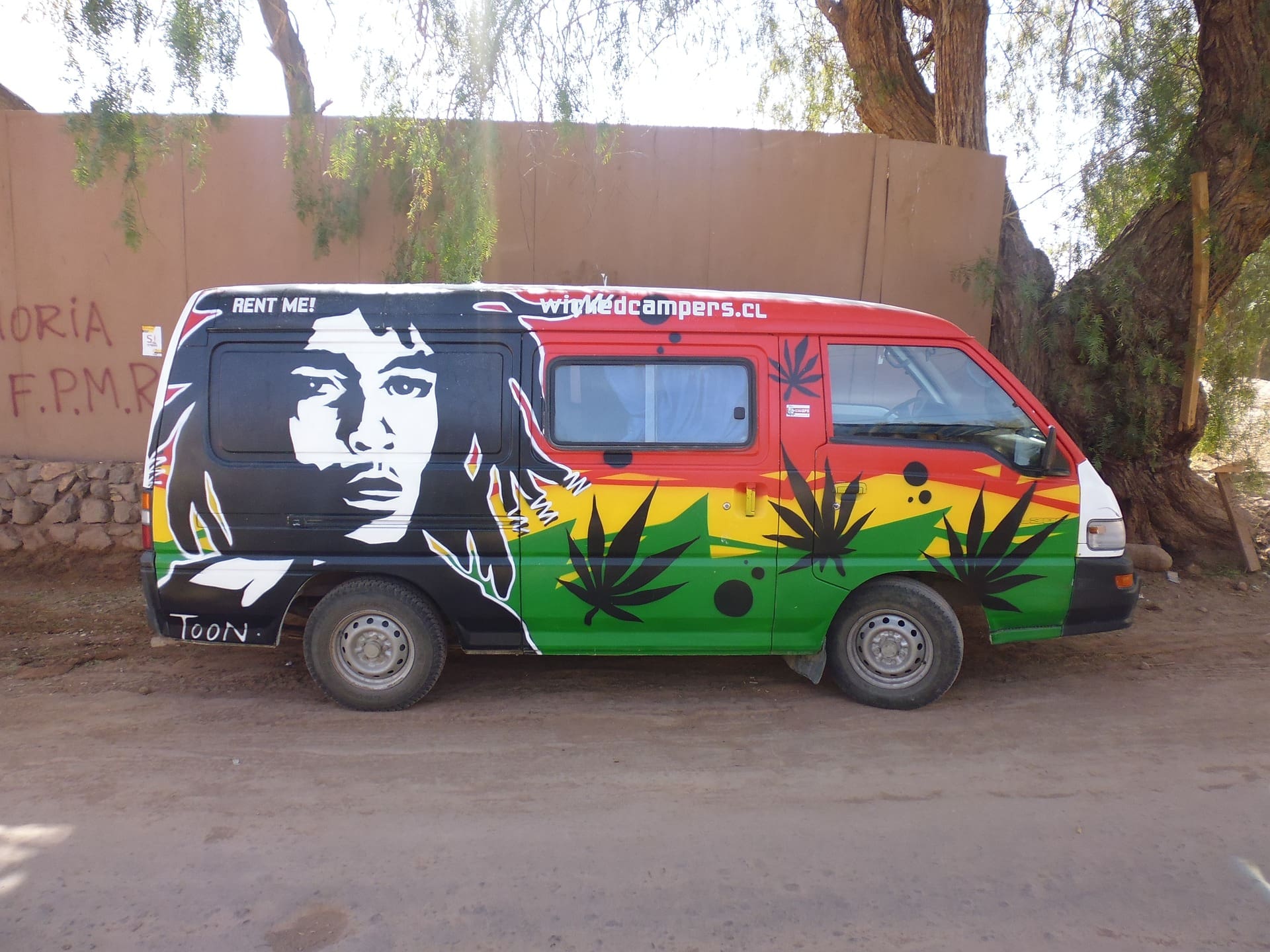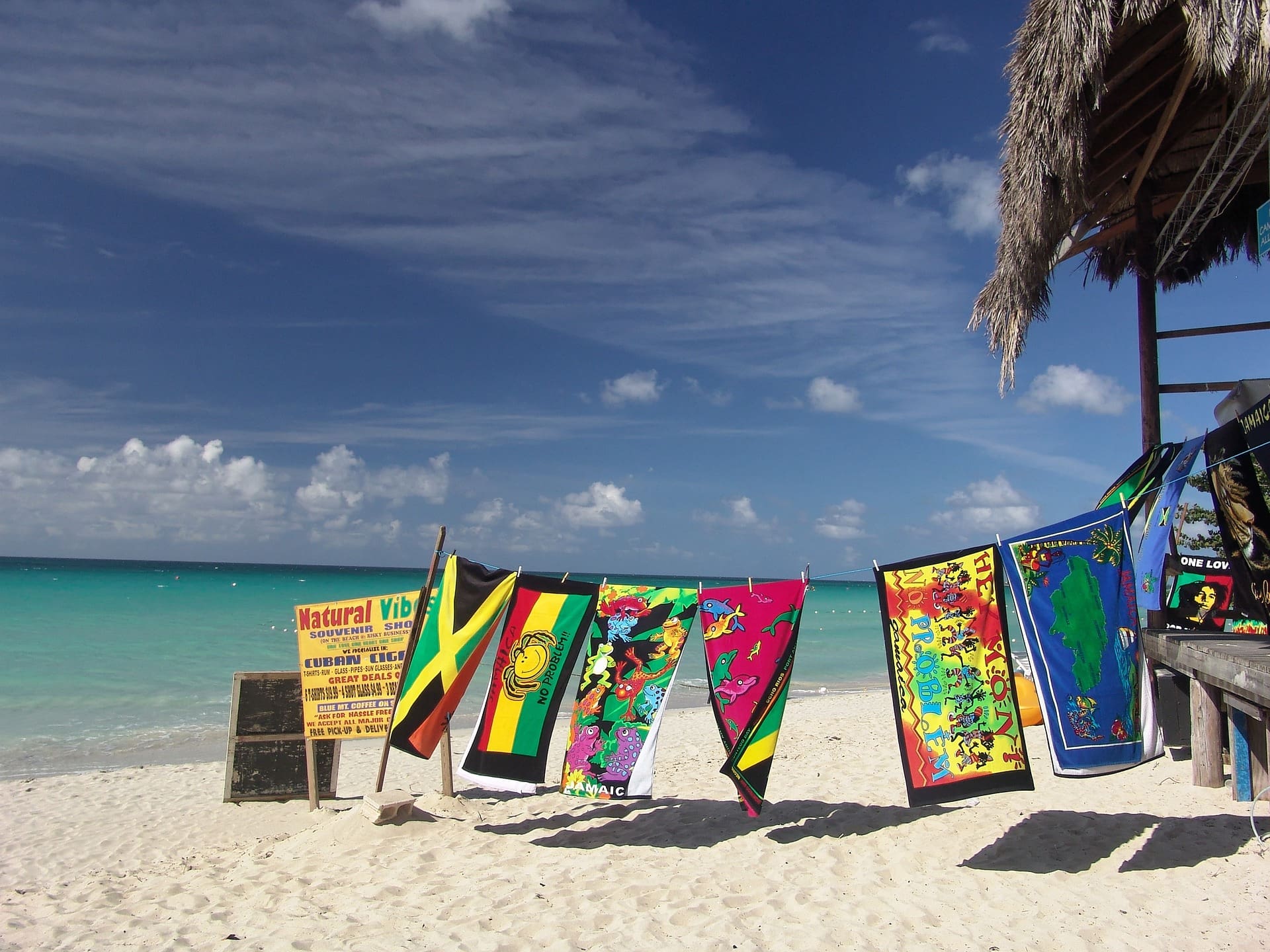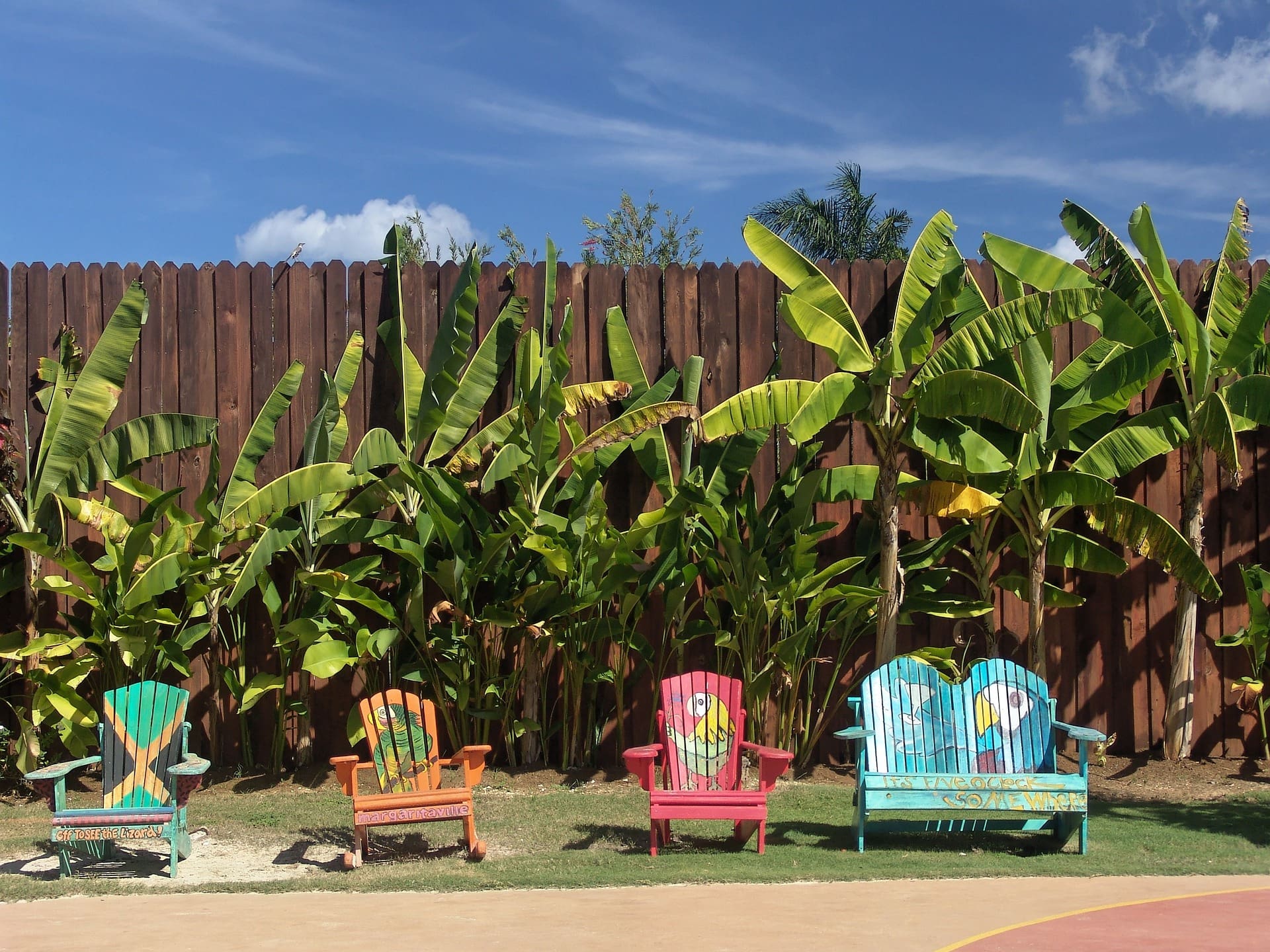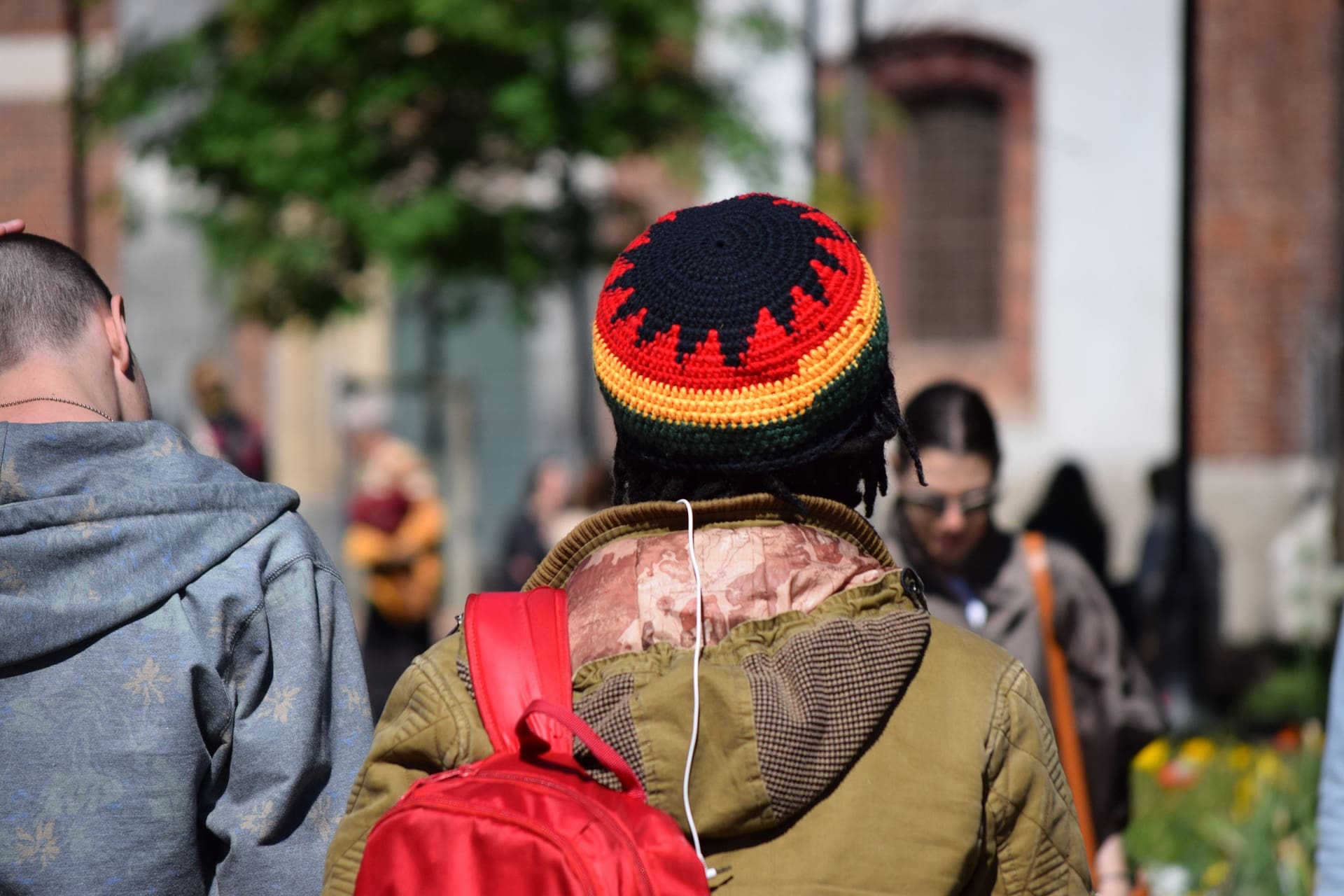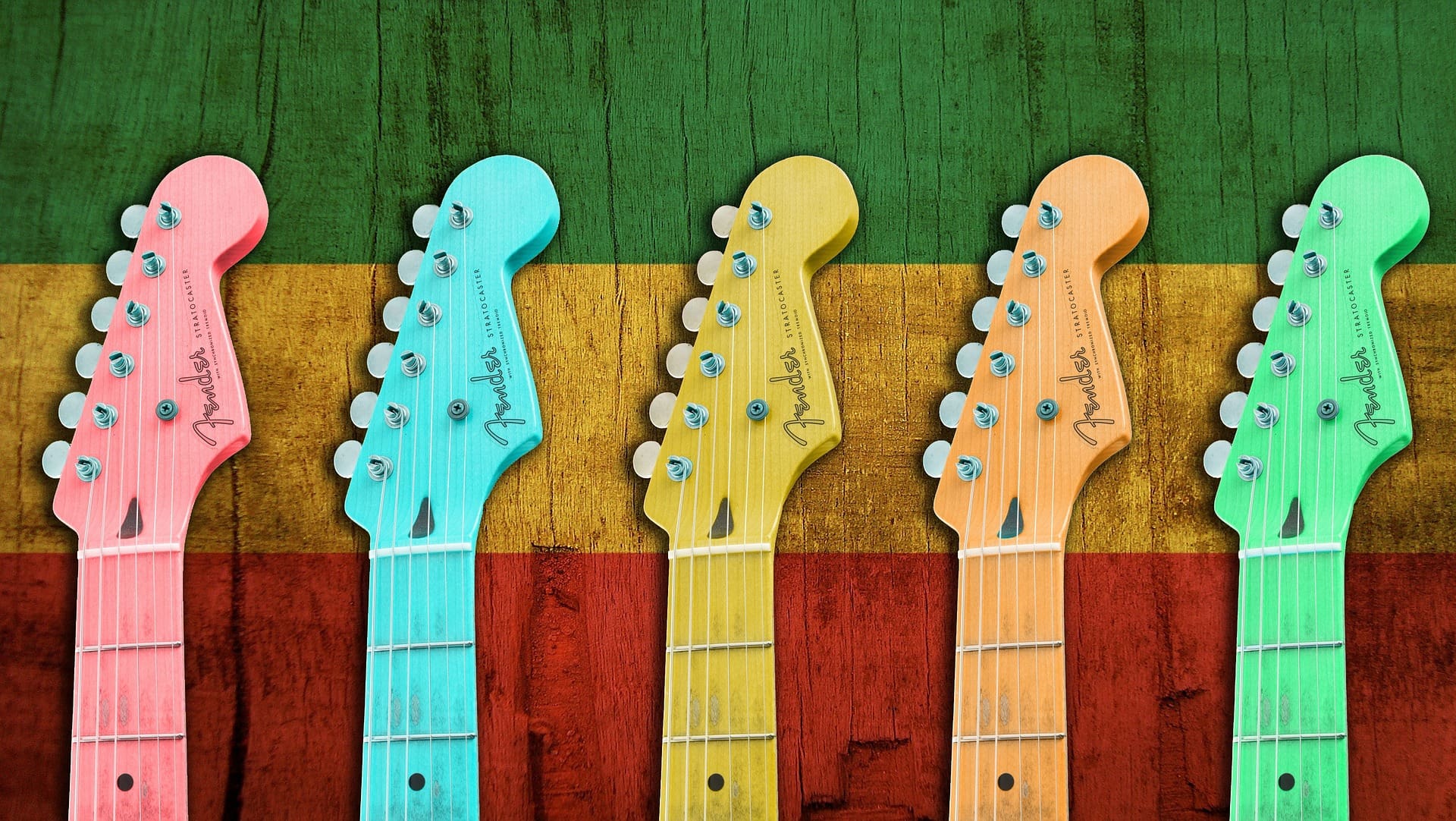Jamaica
reggae, beaches, jerk chicken, caribbean paradise
About Jamaica
Culture and Religion
Where to go
How to get there
Visa Requirements
Travelling Budget
About Jamaica
Jamaica is a stunning island nation located in the Caribbean Sea. With its breathtaking beaches, lush landscapes, and vibrant culture, it is a popular destination for travelers from around the world.
The island is famous for its reggae music, which was popularized by the legendary Bob Marley. The rhythm and lyrics of this genre reflect the laid-back and joyful spirit of the Jamaican people. Visitors can often enjoy live reggae performances and experience the infectious energy of the music firsthand.
Jamaica is also renowned for its delicious cuisine. The national dish, ackee and saltfish, is a flavorful combination of the local ackee fruit and salted cod. Another staple of Jamaican cuisine is jerk chicken, a marinated and grilled dish known for its spicy and smoky flavor. Many tourists also enjoy exploring the local street food scene, which offers a variety of tasty and affordable options.
Beyond the music and food, Jamaica offers an array of natural wonders to explore. Dunn’s River Falls, located near Ocho Rios, is a popular attraction where visitors can climb up the cascading waterfall for a thrilling and refreshing experience. The Blue Mountains, on the eastern side of the island, provide a picturesque setting for hiking and exploring the lush vegetation.
The people of Jamaica are known for their warm hospitality and vibrant culture. From their colorful and lively festivals, such as Carnival and Reggae Sumfest, to their rich history and heritage, Jamaica offers a unique and unforgettable experience for every visitor.
In summary, Jamaica is a paradise with its stunning natural beauty, vibrant music, mouthwatering cuisine, and welcoming people. Whether you are seeking relaxation on the beach, adventure in the mountains, or immersion in a vibrant culture, Jamaica has something for everyone.
Culture and Religion
Jamaica is known for its rich and vibrant culture, which is a fusion of various influences from Africa, Europe, and Asia. The island’s cultural heritage is deeply rooted in its history of colonization, slavery, and the mixing of different ethnic groups.
One of the most significant aspects of Jamaican culture is its music. Reggae, with its distinct rhythm and powerful messages, originated in Jamaica and has become a global phenomenon. Artists like Bob Marley and Jimmy Cliff have spread the sound and spirit of reggae worldwide, highlighting social and political issues through their lyrics. Dancehall music, a high-energy genre that blends reggae and electronic beats, also has strong roots in Jamaica and is popular both locally and internationally.
Religion plays a crucial role in Jamaica as well. The majority of Jamaicans identify as Christian, with various denominations including Roman Catholic, Anglican, and various Protestant sects. However, the Rastafarian movement, which originated in Jamaica in the 1930s, is also a prominent spiritual belief system. Rastafarians believe in the divinity of Emperor Haile Selassie I of Ethiopia and follow principles centered around social justice, love for nature, and the use of cannabis as a sacrament.
Jamaica is also known for its vibrant festivals and celebrations, which reflect the island’s cultural diversity and religious practices. The annual Carnival, which takes place in the weeks leading up to Easter, showcases colorful costumes, music, dance, and spirited street parades. Other notable events include Emancipation and Independence celebrations, which commemorate Jamaica’s history of slavery and its journey to independence.
Art and crafts are significant expressions of Jamaican culture. Traditional crafts such as pottery, wood carving, and basket weaving showcase the island’s creativity and skill. Jamaican visual artists have also gained international recognition for their works, which often explore themes of identity, history, and spirituality.
Overall, Jamaica’s culture is a vibrant tapestry of music, religion, art, and celebration. It is a reflection of the island’s resilient history and the diverse influences that have shaped its people and their way of life.
Where to go
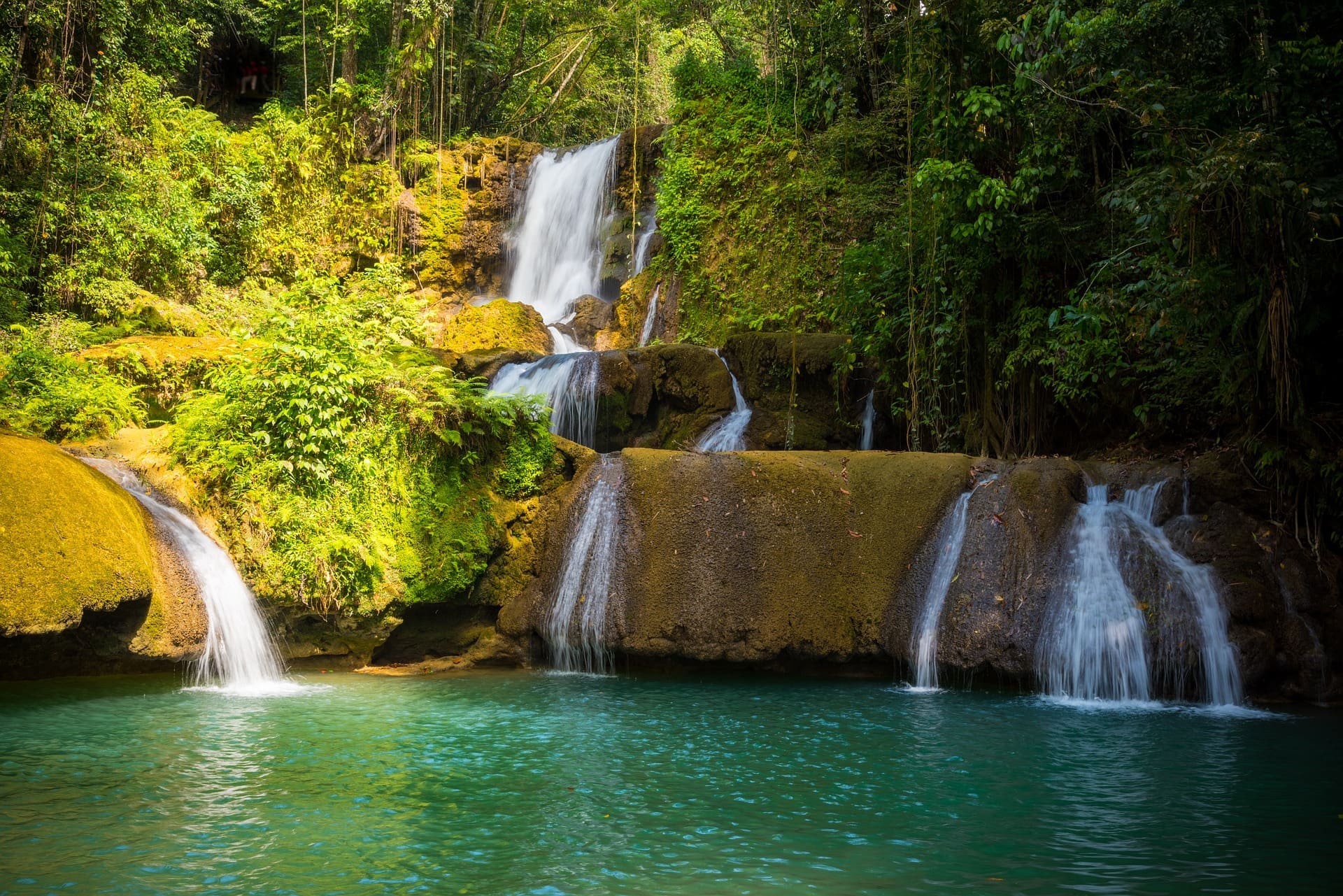
Dunn's River Falls
Dunn’s River Falls is one of Jamaica’s most famous and stunning natural attractions. Located near Ocho Rios, the cascading waterfall offers a unique experience as visitors can climb up the rock formations while being refreshed by the rushing water. The lush surrounding vegetation adds to the beauty of this must-visit destination.

Bob Marley Museum
Immerse yourself in the musical legacy of Jamaica’s most iconic figure, Bob Marley, at the Bob Marley Museum in Kingston. Housed in Marley’s former residence, the museum showcases his life and achievements through exhibits of memorabilia, photographs, and personal belongings. It’s a must-visit for music lovers and those interested in the cultural history of Jamaica.
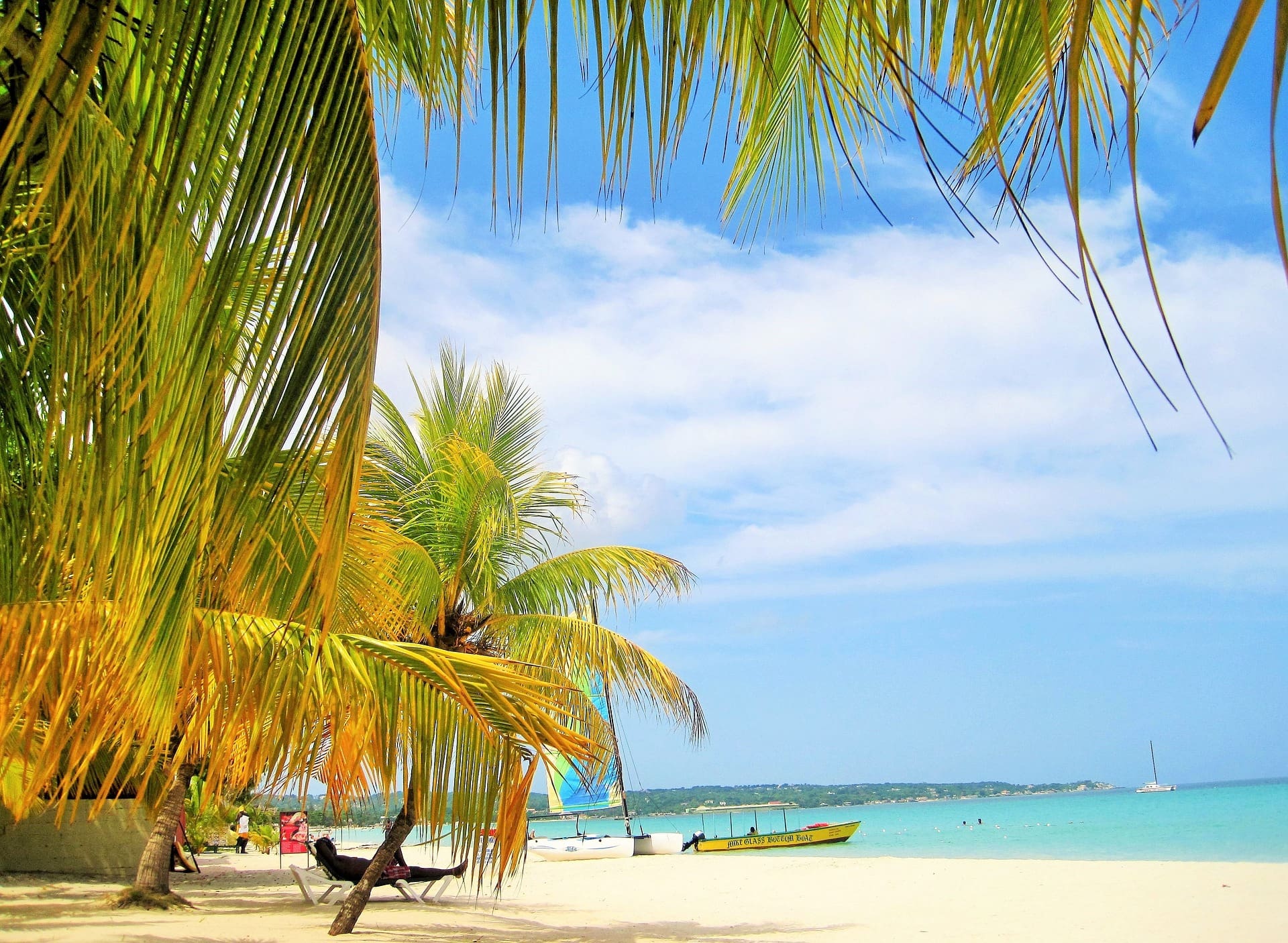
Negril's Seven Mile Beach
Negril’s Seven Mile Beach is a breathtaking stretch of white sandy shorelines and turquoise waters. It’s a paradise for beach lovers, offering opportunities for sunbathing, swimming, and enjoying water sports. The vibrant beach bars and restaurants provide a lively atmosphere, perfect for relaxation and entertainment.

Blue Mountains
For nature enthusiasts and outdoor adventurers, a visit to the Blue Mountains is a must. Located in eastern Jamaica, this mountain range offers stunning landscapes, hiking trails, and the chance to explore coffee plantations. You can hike to the peak of Blue Mountain Peak for panoramic views or enjoy a refreshing dip in one of the waterfalls along the way.
Note: These are just a few highlights in Jamaica, but the island offers so much more to explore from its vibrant music scene to its diverse cuisine, lush rainforests, and historical landmarks.
How to get there
Getting to Jamaica is relatively easy, thanks to its well-connected transportation system and multiple entry points.
The most common way to reach Jamaica is by air. The island has two major international airports: Sangster International Airport (MBJ) in Montego Bay and Norman Manley International Airport (KIN) in Kingston. These airports serve as gateways for travelers arriving from various destinations around the world. Many major airlines offer direct flights to Jamaica, making it convenient to reach the island from major cities in North America, Europe, and the Caribbean.
If you are already in the Caribbean region, another option is to travel to Jamaica by ferry. A popular route is from the neighboring island of Cuba, with regular ferry services operating between Havana and Montego Bay.
Cruise ships also frequently visit Jamaica, stopping at ports such as Montego Bay, Ocho Rios, and Falmouth. This is a great option for travelers looking to combine their Jamaican vacation with a cruise itinerary.
Once you arrive in Jamaica, there are various transportation options to explore the island. Taxis, buses, and rental cars are readily available at both airports, offering convenient transportation to your desired destination. Local buses, known as “route taxis” or “coasters,” are a popular and affordable way to get around the island, especially if you’re traveling between cities or towns.
It’s important to check entry requirements before traveling to Jamaica, such as passport validity, visa requirements, and any necessary health restrictions. Additionally, it is advisable to check for any travel advisories or safety recommendations issued by your home country before planning your trip.
Overall, with its accessible airports, ferry services, and cruise ports, getting to Jamaica is a straightforward process, allowing travelers from around the world to experience the beauty and culture of this Caribbean paradise.
Visa Requirements
Visa requirements for Jamaica vary depending on your nationality. Here are some general guidelines:
1. Visa Exemption: Citizens of certain countries are exempt from obtaining a visa to enter Jamaica for tourism, business, or other short-term purposes. These countries include the United States, Canada, the United Kingdom, and most European Union countries. However, the duration of stay may be limited, typically up to 90 days. It is advisable to check the specific visa exemption period based on your nationality before traveling.
2. Visa on Arrival: Some nationalities are eligible for a visa on arrival in Jamaica. This option allows you to obtain a visa upon arrival at the airport. The visa on arrival is typically issued for tourism or business purposes and is valid for a specified duration. It is important to confirm if your nationality is eligible for a visa on arrival and the specific requirements and conditions that may apply.
3. Visa Application: If you are not eligible for visa exemption or visa on arrival, you will need to apply for a visa in advance. Contact the Jamaican embassy or consulate in your home country to obtain information about the visa application process, required documents, and fees. The application process may include submitting an application form, passport-sized photographs, proof of accommodation, proof of funds, a return ticket, and other supporting documents.
It is essential to verify the most up-to-date visa requirements and procedures specific to your nationality before traveling to Jamaica. The Jamaican embassy or consulate in your country or jurisdiction will provide accurate and reliable information regarding visa requirements, application processes, and any recent updates or changes.


Travelling Budget
The cost of traveling to Jamaica can vary depending on your travel style, season, and choice of accommodations and activities. Here are some factors to consider when planning your travel budget to Jamaica:
1. Flights: The cost of flights to Jamaica will depend on your departure location and the time of year you are traveling. Prices can fluctuate, so it’s advisable to compare fares from different airlines and book in advance to secure the best deals.
2. Accommodation: Jamaica offers a wide range of accommodation options, from budget-friendly guesthouses and hostels to luxury resorts. Prices will vary depending on the location, amenities, and time of year. It’s advisable to research and compare prices to find accommodations that fit your budget.
3. Food and Drinks: Jamaica is known for its delicious cuisine, and there are plenty of options for every budget. Local street food vendors offer affordable and tasty meals, while restaurants and resorts can be more expensive. In general, dining at local eateries and trying street food can help you save money on food expenses.
4. Transportation: Transportation costs in Jamaica will depend on your chosen mode of transportation. Local buses and route taxis are more affordable options for getting around the island, while private taxis and car rentals can be more expensive. It’s advisable to plan your transportation carefully and factor in these costs when budgeting.
5. Activities and Attractions: Jamaica offers a wide array of activities and attractions, including beach visits, water sports, hiking, and cultural tours. Prices can vary, so it’s important to research beforehand and prioritize activities that fit within your budget. Also, consider visiting free or low-cost attractions such as public beaches and local festivals to help manage costs.
6. Miscellaneous Expenses: Don’t forget to budget for additional expenses like travel insurance, souvenirs, tips, and any unforeseen costs that may arise during your trip.
Overall, budget travelers can expect to spend around $50 – $100 USD per day, while mid-range travelers should budget for $100 – $200 USD per day in Jamaica. However, these are rough estimates, and your actual expenses will depend on your choices and preferences.
What makes your journey easier
Everything you need to know about what to bring to make your travels easier, more safe and fun
Be Mindfull
Gadgets
Gear
Insurance
Visa


